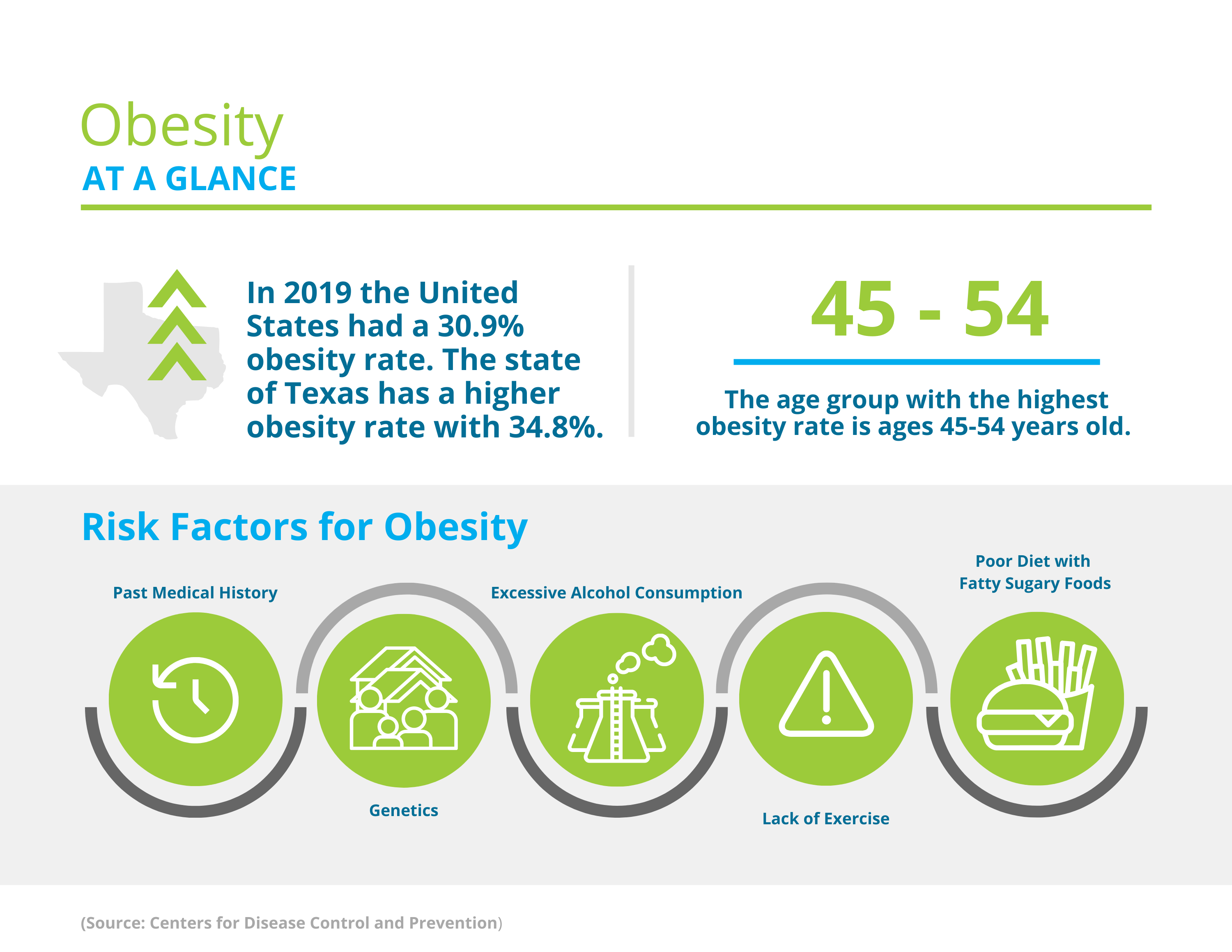
What is Obesity?
Obesity is a common term to most people. Most may think of obesity as mainly just a cosmetic concern, however there are many health concerns related to obesity. Obesity is the excess of body fat, and occurs in all age groups. Obesity that is not managed or uncontrolled can lead to heart disease, stroke, diabetes, sleep apnea, digestive problems, certain cancers, osteoarthritis, chronic pain, poor quality of life, mental illnesses such as anxiety or depression, feelings of isolation, and even death.
Causes?
A common misconception is that obesity is due to lack of exercise and poor diet. That is a major component of obesity. However, there are other factors that can play a role in obesity such as genetic factors, hormone imbalances, or metabolic insufficiencies. But as said, a major cause for obesity is lifestyle choices. A poor exercise routine can lead to an increase in body fat, as no activities are done to reduce the amount of body fat. A poor diet that can lead to obesity is high in sweets, baked goods, fast food, oversize portions, sugar filled drinks such as soda pop or sweet tea, alcohol consumption, highly processed foods, frequent snacking, and a lack of fruits and vegetables. Some additional factors that may lead to obesity are social pressures, lack of sleep, stress, poverty, pregnancy, or age.
Diagnosis & Treatment?
Diagnosing obesity by a physician is generally done through a physical exam. The physical exam will include taking height, weight, heart rate, blood pressure, health history, and measuring circumference of waist. Doctors may also examine for other medical conditions, or obtain bloodwork to check for any abnormalities.
Some of the treatment options for obesity include gastric bypass surgery, gastric sleeve surgery, weight loss prescription medication, and lifestyle changes. Many doctors will start with lifestyle treatment before recommending any other treatment. Lifestyle changes will include having an exercise routine to keep you active, a healthier diet, cutting back on eating fast food and sweets, monitoring portion sizes, limiting sugar filled beverages, meal replacements, and even therapy to overcome challenges with unhealthy eating. Every treatment plan is different and depends on the patient, and the doctor’s recommendation. There are several over the counter weight loss medications available on the market, it is VERY important to speak with your doctor before even purchasing any of these medications, as they can cause serious side effects.
For more information: https://www.cdc.gov/obesity/index.html


